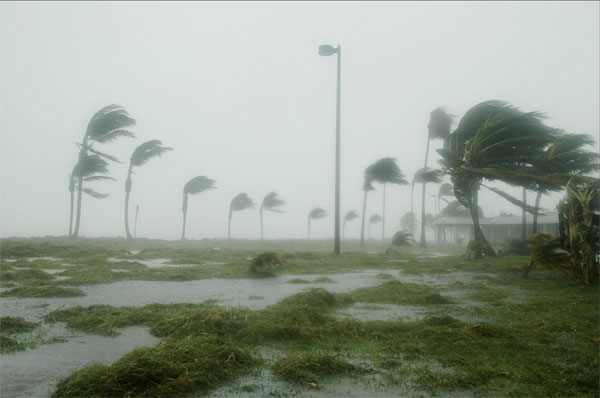Devastating Hurricane Helene strikes east coast

[Hurricane. Photo Credit to Pxhere]
Hurricane Helene, one of the most powerful storms of 2024, made landfall along the eastern coast of the United States, bringing unprecedented devastation.
The Category 4 storm, with sustained winds of up to 150 mph, has resulted in at least 43 confirmed fatalities, extensive property damage, and widespread flooding.
It has left millions without power and has prompted emergency services to work around the clock to rescue stranded residents and assess the full scope of the disaster.
The brunt of the storm hit North Carolina, Virginia, and Maryland, with coastal towns bearing the worst of the Hurricane.
Local authorities have declared an emergency across all three states, urging residents to remain in shelters as search and rescue operations continue.
Florida Governor Ron DeSantis stated, “When Floridians wake up tomorrow morning, we’re going to be waking up to a state where very likely there’s been additional loss of life and certainly there’s going to be loss of property,” at a news conference.
Mandatory evacuations were issued in low-lying areas, but many residents who chose to stay behind are trapped in their homes due to rising floodwaters and fallen debris.
Coastal cities like Wilmington, North Carolina, and Virginia Beach, Virginia, are reporting extensive flooding, with houses and vehicles submerged.
Power outages are affecting over four million residents along the coast, with warnings that it could take weeks to restore power to some areas.
In addition to the wind and storm surge damage, Helene’s heavy rains have triggered widespread flash flooding.
Some areas have received over 12 inches of rain in just 24 hours, causing rivers to overflow into neighborhoods.
Due to the excessive flooding, the National Guard has been deployed to assist in rescue operations, particularly in rural communities where residents are cut off from emergency services.
The destruction of critical infrastructure is another major concern in the aftermath of Hurricane Helene.
Major highways and bridges along the coast have been washed out or damaged, complicating efforts to deliver aid and evacuate survivors.
Airports in several major cities, including Norfolk International Airport and Raleigh-Durham International Aiport, remain closed as officials assess runway conditions.
The combined economic losses from the storm are expected to be in the billions.
The tourism industry, which plays a vital role in many of the affected communities, is also likely to suffer severe long-term consequences as a result of the storm.
Several popular tourist destinations such the Outer Banks and Virginia Beach have been either completely destroyed or severely damaged.
Insurance companies are bracing for a surge of claims regarding housing, and many residents without flood insurance face the challenge of rebuilding their houses without aid.
Economists warn that the recovery process will be lengthy, particularly for small businesses and lower-income families who are already struggling with inflation and economic uncertainty.
President Biden has promised federal assistance in response to the disaster, promising swift action from the Federal Emergency Management Agency (FEMA).
He advised people to take the storm “seriously”, stating, “Listen to your state and local elected officials. If they tell you to evacuate, evacuate. If they tell you to shelter in place, stay where you are. These decisions can save lives."
This is the third major hurricane of the 2024 season, and experts fear that more could be on the way.
The increasing frequency and severity of storms have prompted discussions about climate resistance, with many calling for stronger infrastructure and better preparedness measures in vulnerable regions.
As Hurricane Helene continues to move northward, millions of Americans are left grappling with the aftermath of one of the most destructive storms to hit the region in recent history.

- Yuchan Shim / Grade 11
- Cornerstone Collegiate Academy of Seoul

![THE HERALD STUDENT REPORTERS [US]](/assets/images/logo_student_us.png)
![THE HERALD STUDENT REPORTERS [Canada]](/assets/images/logo_student_ca.png)
